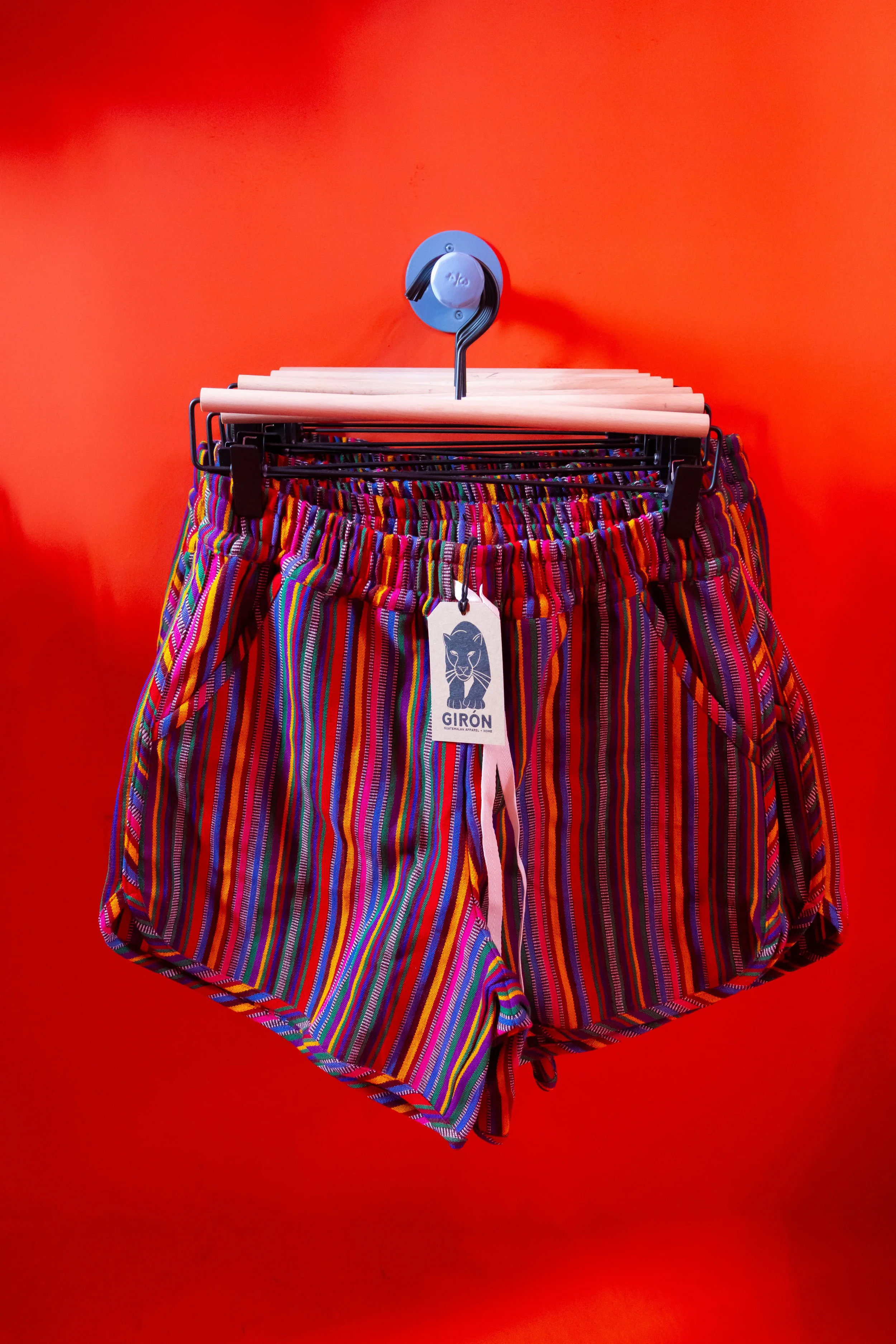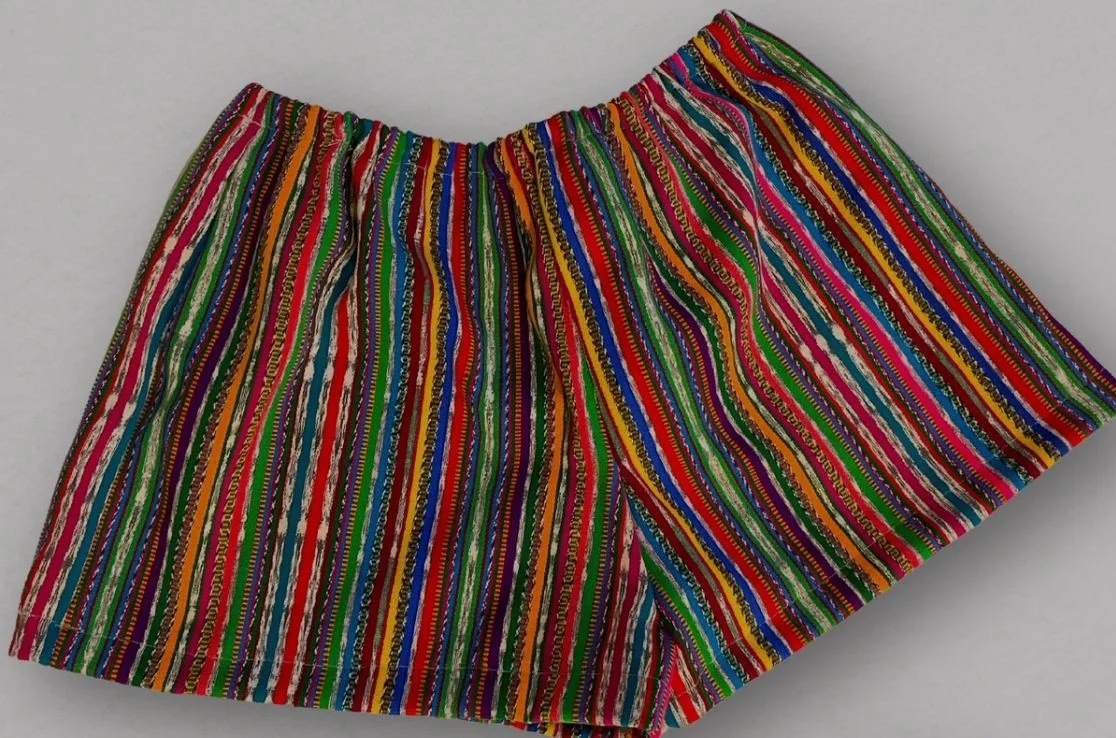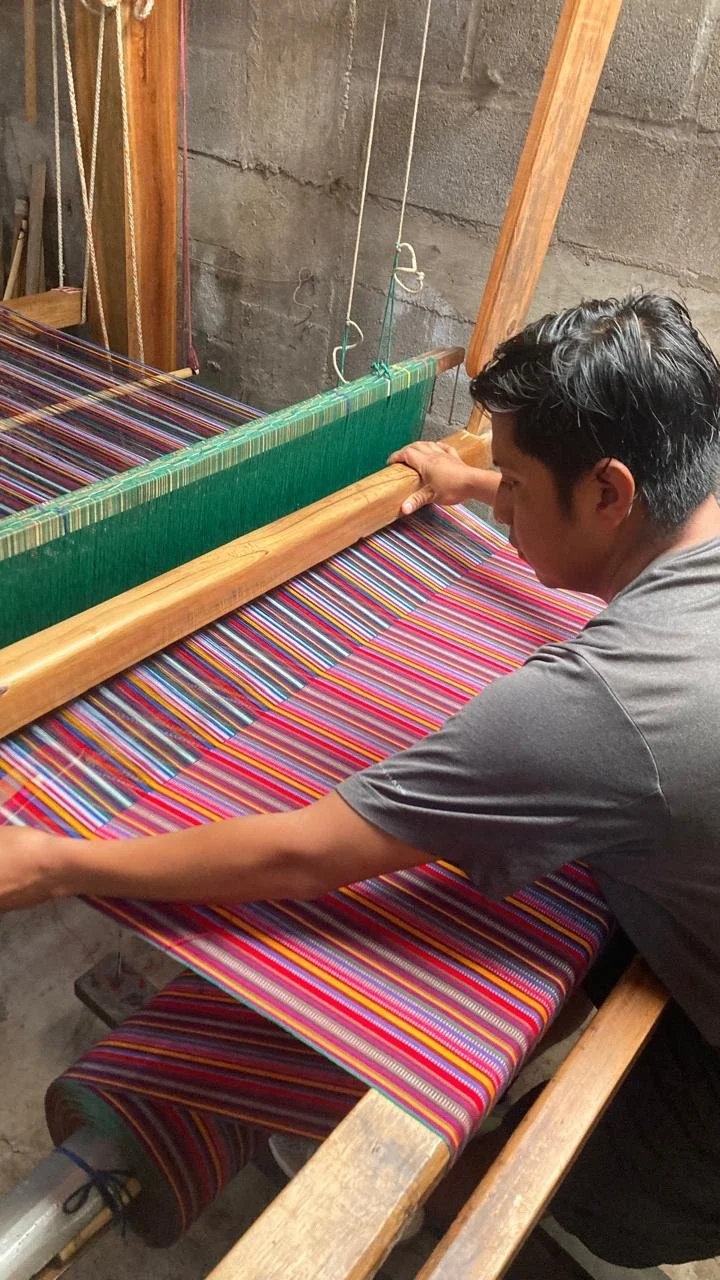Woven in Collaboration: The Story Behind Girón Apparel + Home
How It’s Made
When Valeska from Girón Apparel + Home asked us to replicate one of her original designs that she had sewn herself when she and her husband Manuel launched their brand, we were excited for the challenge! Now that she and Manuel are running a brick-and-mortar pop-up in Chicago, Valeska has less time to sew, so she asked for our support.
We often meet brands who are excited by the beautiful handmade textiles found at markets in Guatemala, and we get it. But we love working with clients to create something entirely custom because we believe the most effective way to keep weaving traditions alive is by placing direct orders with weavers. This approach allows us to ensure that weavers are paid fairly, with no middlemen between the client and the weaver.
Rather than trying to find a similar Guatemalan fabric at the market, we decided to create the fabric from scratch—making a completely unique textile crafted with care and transparency. To bring the new fabric to life, we started with a digital mockup to ensure the design followed our client’s vision. Then we shared it with Gudi Perez, where the real design skills and magic came to life. Gudi is a master weaver who took our illustration and brought it into the physical world.
Through our partnership, Girón Apparel + Home has provided consistent and dignified work for artisans in Guatemala for the last two years!
Behind the Brand
1) What inspired you to start your business?
We started Girón Guatemalan Apparel and Home because we love our culture and wanted to see it represented in a way that felt real and respectful—especially in a city like Chicago that’s full of culture but often lacks authentic Latino visibility. For years, we saw non-Latinos selling Latin American goods without any connection to the people or traditions behind them, and honestly, it didn’t sit right with us. We felt a responsibility to change that. This business is our way of celebrating who we are, while also creating something that brings people together—across cultures, generations, and communities.
2) Where do you get your inspiration for your custom designs?
Our designs are a blend of where we’re from and where we’re at. We’re inspired by the bold colors and patterns of traditional Guatemalan textiles, but also by the energy and stories of Chicago—it’s raw, real, and always evolving. A lot of what we make comes from this feeling of, “Why doesn’t this exist yet?” You don’t really see things like candles made for Guatemalans, or tees with phrases like “Puchica vos”, or designs that rep both our culture and Chicago’s neighborhoods. So we decided to create them—and people really connect with it.
3) You are both Guatemalan, how has your perspective of Guatemalan Textiles changed over time?
Growing up, we kind of saw Guatemalan textiles as something traditional—beautiful, but maybe a little old-school. They were for special occasions or kept tucked away. But as we got older, our view totally changed. We started to see them as living art—full of history, meaning, and so much skill. Every thread tells a story. Now, it’s not just about admiring them, it’s about advocating for them. We feel a real responsibility to honor these traditions and help keep them alive in a way that feels fresh and relevant for our generation and the next.
4) We love that you prioritize working with other minority owned businesses! How do you go about the process of deciding to work with your vendors?
Thank you! For us, collaboration is everything—and honestly, it’s even more meaningful because we’re a family business. Every step of the process has someone from our family involved, and we’re really proud of that. It wasn’t something we planned from the start, but it’s worked out in the best way. When we choose who to work with, we look for people who share our values—folks who care about community, culture, and doing things ethically. For us, it’s never just about business—it’s about building something meaningful together.





